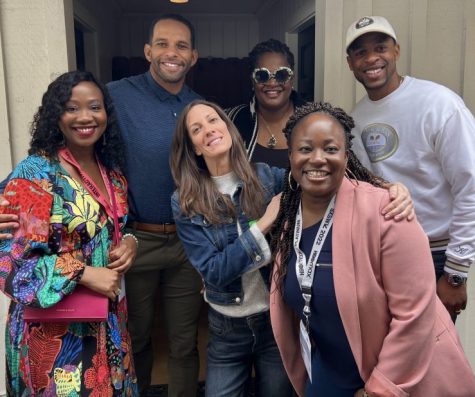In 2021, female-founded companies generated a record-breaking exit value of nearly $59B.
Among other insights about female-led, VC-backed startups reported in Female Founders Fund’s 2021 Review of Funding for Female Founders:
+ More women-led companies went to IPO in 2021—seven in total. Put in perspective, only 20 female-founded companies went public during the entire preceding 30 years.
+ More women-founded companies achieved unicorn status—83 out of 595 total for the year. Among them are several companies in the GBC portfolio whose valuations got a big bump after raising later-stage rounds in 2021:
- Spring Health (valuation of $2B), a mental-health-solutions employee assistance program led by April Koh; and
- Maven Clinic (valuation of $1B), a telemedicine platform for women’s & family health founded by Kate Ryder.
In fact, later-stage growth rounds represented the highest proportion of VC investments in women-founded companies in 2021, the FFF report found. More of those in the GBC portfolio include:
- Tala, an emerging-market fintech founded by Shivani Siroya ($145M series E);
- Workit Health, an online addiction recovery program provider led by co-founders Lisa McLaughlin + Robin McIntosh ($118M series C); and
- Tia, a women’s health platform, led by Carolyn Witte + Felicity Yost ($100M series B).
+ Series A rounds were also way up for female-founded startups — both in round size and deals. (To put in perspective, only 20-30% of companies that raise a seed round go on to raise a series A round.)
Nevertheless, ‘It’ Persists
The “it” in the room being… the paltry percentage of VC funding that goes to female founders. Companies founded solely by women garnered around 2% of all VC dollars in 2021, a figure that hasn’t budged for years.
Companies with male and female co-founders received a little under 15% of VC dollars last year, down from an all-time high, in 2017, of 15.9%, according to Pitchbook.
So, how do we reverse this persistent “it”? We believe four things need to change in the funding ecosystem:
1. More representation of women in check-writing roles.
At VCs, growth equity firms, PE firms and family offices, too. This has been trending in the right direction over the last three years, with increasing numbers of women as partners in VC firms (from 12 to 15%), angel investors (from 750 to 1,000 women) and those starting their own funds to invest in women and diverse founders. High net worth family offices are also allocating more capital to diverse founders and founders focused on social impact.
In fact, one study shows an unprecedented wave in just the last six years of new funds focused on diversity. Data compiled annually by Fairview Capital Partners (co-founded in 1994 by Joann Price, the firm is a pioneer of diversity-focused investing) show at least 627 PE and VC firms that are majority-owned by women and ethnic minorities in the US in 2021, an all-time high and up 25% from a year earlier. Of those firms, 280 were actively raising VC funds during 2021. And while they represent just about 6% of the record-breaking $128+ billion total raised, we’re confident this is just the beginning of huge growth ahead for diversity-targeted funds. Read the report.
2. More deals funded for women founders.
According to Pitchbook, a little over one-quarter of all the VC deals in 2021 were made with women-only (6.6%) or female-male co-founded companies (19%) — about 3,945 deals in all. We need more VC funds that target more deals especially in earlier-stage rounds, that allow promising startups to breathe, stretch and grow.
3. Larger deal sizes for women founders.
The paltry percentage of VC investments in women founders is skewed heavily by large, later stage deals. Considering that the average seed-to-exit life cycle is seven to eight years, we need the continued progression of women founders in the entire life cycle of funding!
4. More successes beget more success.
Since our founding in 2016, we’ve bet on the potential of women-led businesses to become wildly successful and produce outsized returns — and to create a new crop of women founders with capital that they put back into the VC ecosystem. This will attract the attention of more investors. Perhaps then, the VC industry as a whole will wake up and realize the incredible opportunities they’ve been missing out on.
It’s not like we didn’t tell them so.
***


 Also during SXSW2022, we teamed up with Deena Shakir, partner at Lux Capital to co-host an “Investing in Women” brunch. We filled the patio and back room at the Moonshine Grill in downtown Austin with an impressive group of women (and some men, too) who make it their business to support women and diverse founders and funders.
Also during SXSW2022, we teamed up with Deena Shakir, partner at Lux Capital to co-host an “Investing in Women” brunch. We filled the patio and back room at the Moonshine Grill in downtown Austin with an impressive group of women (and some men, too) who make it their business to support women and diverse founders and funders.